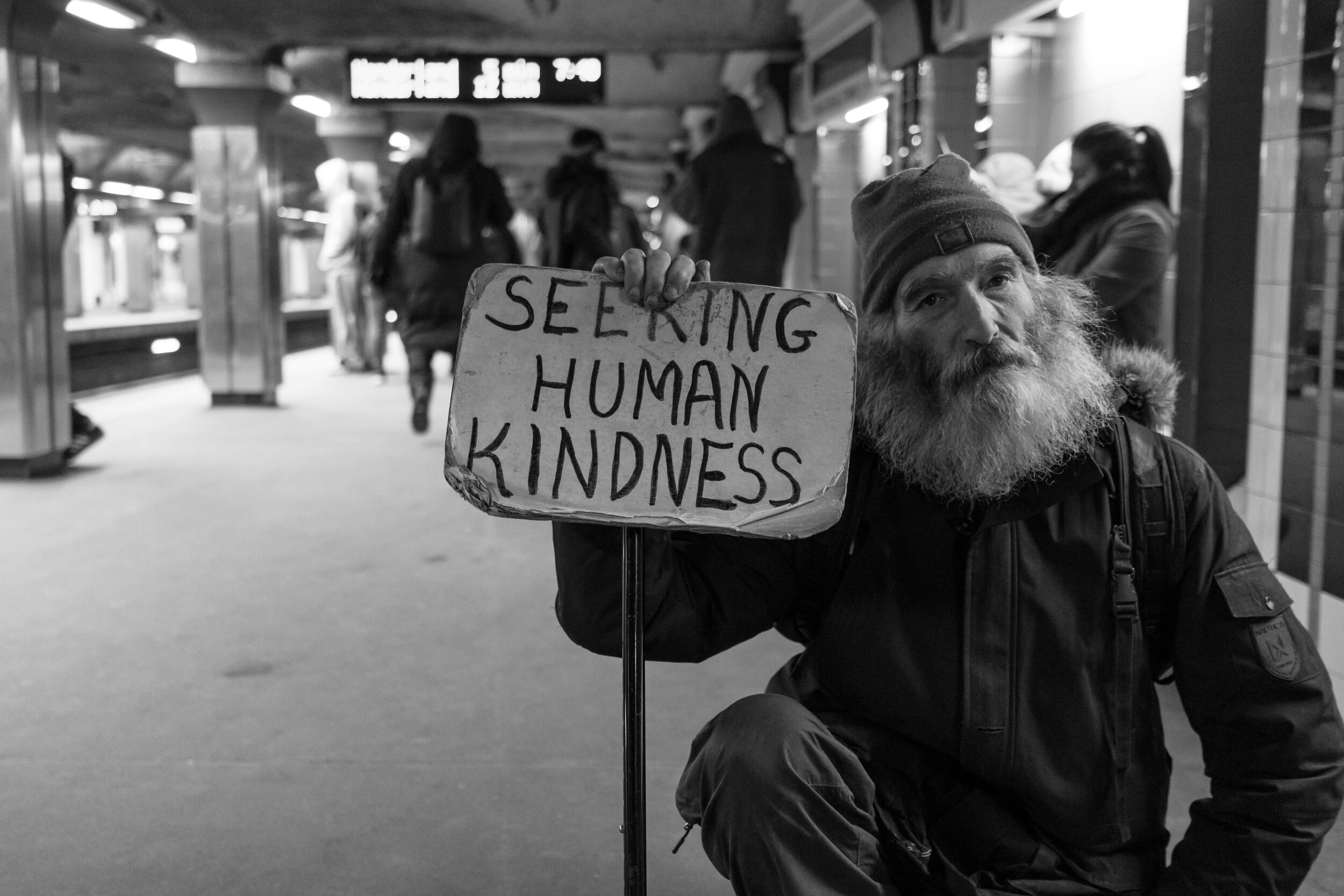The Prevalence of Hunger and Homelessness Amongst American Veterans
Photo Credit © Matt Collamer on Unsplash.
The prevalence of hunger and homelessness amongst American veterans is a shocking and saddening statistic; especially considering the United States is the wealthiest nation on earth. Food insecurity amongst veterans is almost twice the national average, with as many as 24% experiencing hunger issues on a regular basis. [FN1] It seems unjust and paradoxical that those who have fought for their country and put themselves at risk to protect the rest of the population should suffer from food insecurity. Which begs the question, why are United States veterans going hungry?
There are a number of reasons why food insecurity is prevalent among the veteran population. Due to the nature of military service, veterans are more likely to suffer from disabilities, both physical and mental, which can lead to an ongoing struggle with employment and receiving social support. This, in turn, increases the likelihood that a veteran will have reduced access to or ability to purchase food. [FN2] Healthcare premiums are also much more likely to be relatively high for veterans due to these high instances of disability. This in turn cuts into the income that could otherwise have been spent on purchasing food.[FN3] However, perhaps the predominant reason why so many Veterans go hungry on a regular basis is the high rates of homelessness in this demographic. Sadly, the U.S. Department of Veterans Affairs estimates that approximately 11% of homeless adults in the U.S. are veterans. A further 1.4 million are at risk due to poverty and poor living conditions. [FN4]
Upon discharge from the military, there are a number of benefits available to veterans, such as pensions, educational benefits, disability compensation, medical benefits and career counseling. [FN5] However, not all veterans are eligible for benefits, with a surprising number of them receiving no benefits at all upon discharge. Many who have left the military with anything less than an honorable discharge are denied benefits despite their eligibility. Those discharged less than honorably are often told that they do not qualify for veteran’s benefits when, in fact, this isn’t true. According to the 1944 GI Bill, health care benefits should cover all discharges with the exception of dishonorable discharge. But despite this the VA frequently denies eligible veterans benefits that they are actually entitled to, according to veteran advocates. [FN6]
Notwithstanding the many veterans who are unjustly denied benefits that could prevent them from falling into homelessness, mental and physical disabilities caused by combat are still blamed for the many who are going hungry and living on the streets. There are a large number of ex-military service men and women who suffer from PTSD, substance abuse and other comorbid disorders such as depression. Such mental health conditions prevent veterans from taking care of themselves and being able to seek employment, thus leaving no option other than to live on the street and go hungry. In addition, job seekers with military backgrounds do not always fit the profiles sought for conventional employment roles. This leaves veterans at a significant disadvantage compared to civilian population when searching for employment. [FN7]
In order to aid those who have served the United States, there are services and programs that work tirelessly in an attempt to reduce veteran food insecurity. SNAP is an indispensable resource, with nearly 1.3 million low-income veterans relying on SNAP benefits. Florida alone has 116,000 veterans who rely on food stamps. [FN8] But the issue certainly doesn’t stop there. Those statistics refer to veterans who have some form of assistance to keep them from going hungry, but there are still many who have no such help from the government. Organizations and nonprofits across the country such as Feed Our Vets, which provides free food assistance for veterans, are invaluable in keeping as many veterans fed as possible. [FN9] There are also a number of programs that aim to teach veterans about agriculture and help them grow their own food (Armed to Farm is one such organization, teaching sustainable agriculture to ex-military personnel).
Sadly, the future is uncertain for the many United States veterans once they are discharged from the military. It’s estimated that 20% of veterans who served in Afghanistan and Iraq suffer from PTSD, and approximately 20 veterans per day commit suicide. [FN10] Tens of thousands of United States veterans go hungry daily, primarily due to lack of resources, unemployment, and homelessness. There is research suggesting that proper support, diminished overall stress and access to stable housing is significant in reducing the risk of high stress levels and suicidal thoughts for these individuals. United States veterans deserve a stable future and access to good nutrition. To find out more about how you can help our veterans, take a look at the resources included below.
Resources and Notes
[1] https://www.ncbi.nlm.nih.gov/pmc/articles/PMC7010340/
[2]https://www.military.com/daily-news/2019/05/30/study-aims-show-why-some-veterans-go-hungry.html
[3] https://hungerandhealth.feedingamerica.org/understand-food-insecurity/
[5] https://www.military.com/benefits/veteran-benefits.html
[7] http://nchv.org/index.php/news/media/background_and_statistics/
[9] https://feedourvets.org/about-fov
[10] https://www.woundedwarriorhomes.org/who-we-are?gclid
If you would like to help the US Veterans, these organizations are able to receive donations.
https://nutf.org/homelessness-and-being-a-veteran/?gclid
https://www.woundedwarriorhomes.org/who-we-are?gclid

